In my Investor Profile Series, I use a question & answer format to share the stories of actual real estate investors at different stages of their investing careers.
Today’s investor profile is about John from the blog ESIMoney.com. I’ve enjoyed his blog for a while, but I finally got to meet him at the FinCon blogging conference last year. I knew after hearing his story that I wanted to share it with you.
John came from humble beginnings as a kid, worked his way up at corporate jobs, and retired recently in his early 50s. Although the results are impressive, his basic process was very simple – earning, saving, investing (thus his blog’s name ESI Money). But as you know, simple isn’t always easy.
So, let me turn it over to John to share his story …
Personal
Name: John at ESI Money
Age: 53
Your home location: Colorado Springs, CO
Career/Source of regular income:
I had a 28-year career in business (marketing was my specialty) which ended in 2015 when I retired (at least from a traditional career).
During those 28-years I was able to grow my salary by over 8% annually which was a vital part of my financial success. This is one of the reasons I write so much about growing your career — it can make a HUGE difference in your finances.
What hobbies do you enjoy? What do you do for fun?
Well, I live in Colorado, so hiking is a hobby, of course. There are so many trails and outside activities that we can’t seem to get to them all. One that’s especially fun is “The Incline.” It’s a 2000-foot, 2,700-step “trail” up the side of Pike’s Peak at a 41% incline. My goal is to do it in under an hour. I was SO CLOSE this past year!!
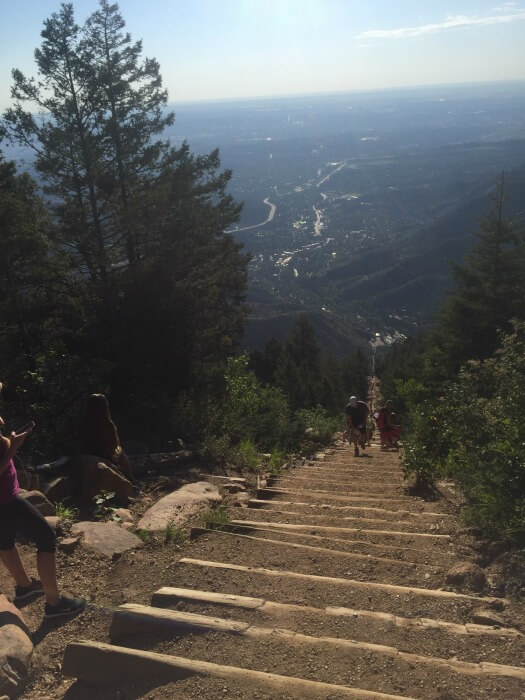
Related to hiking is walking. My wife and I take a couple half-hour walks every day, and I like to get in at least 15,000 steps per days.
I also like writing (of course) and reading/listening. I read tons of blogs and sites and perhaps one book per month. And I listen to many different podcasts and audio books — especially on long walks or trips.
I’m also a video game fan. I like the ones where you play a hero and stealth/strategy is a key part of how you approach each challenge. Some of my favorites are the Batman Arkham games, Assassin’s Creed, Shadow of Mordor/War, and Horizon Zero Dawn.
[Chad: We have similar hobbies! Walking and hiking is one of my favorite pass times. Being in Ecuador this year we have no car and we walk everywhere. I LOVE it. ]
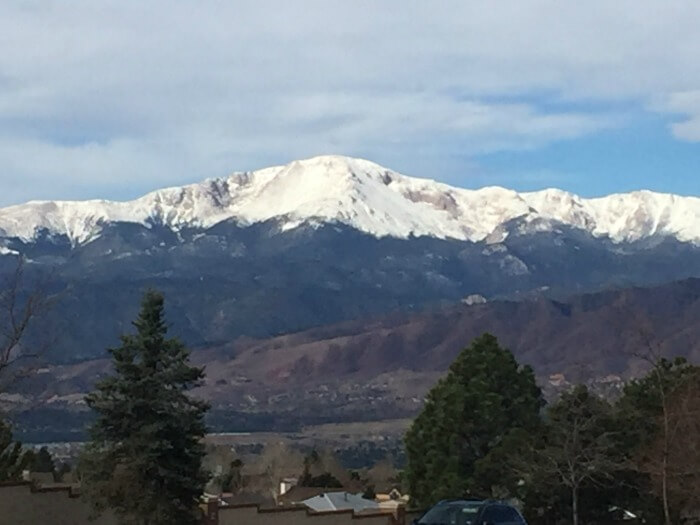
A fun/interesting/little-known fact about you?
[Chad: That IS interesting! A man of many, many talents.]
Financial Independence/Retirement Plans
What does financial independence (FI) mean to you?
I define financial independence as “having wealth to cover expenses indefinitely.”
I hit it in my 40’s but wasn’t smart enough to realize it. Then I came to my senses and realized I have enough to live forever without dipping into any of my investments, so I go off the work merry-go-round.
[Chad: I actually use John’s definition anytime I have to explain the basic’s of financial independence. It’s the clearest, most succinct, and accurate definition I’ve found.]
Do you have plans for financial independence/retirement? Or have you already reached financial independence?
As I said above, I’ve been financially independent for some time now. I finally realized it and retired at 52 from full-time work.
That was about a year and a half ago. Since then I have been writing, exercising (in the best shape of my life currently), traveling (in the US and Caribbean), and enjoying the hobbies noted above.
Why do you want to achieve retirement/financial independence? What kind of activities and projects will you spend more time on?
For me, freedom of time was the main reason I finally retired. I wanted to be able to do what I wanted when I wanted.
With freedom of time, I could do all the activities noted above that I enjoy versus spending 8+ hours a day doing what I had to in order to provide for my family.
If you had to start over and wanted to become financially independent, what’s the most important thing you would focus on?
Well, I actually wrote two posts on what I would do differently if I started over, but if there was one thing it would be to invest earlier in real estate
[Chad: Real estate! Imagine that. “I wish I would’ve done real estate earlier” is a common refrain. So, all of you on the fence out there, remember to just get started. Baby steps are ok, but the sooner you get in the game, the more you learn.]
Real Estate Investing
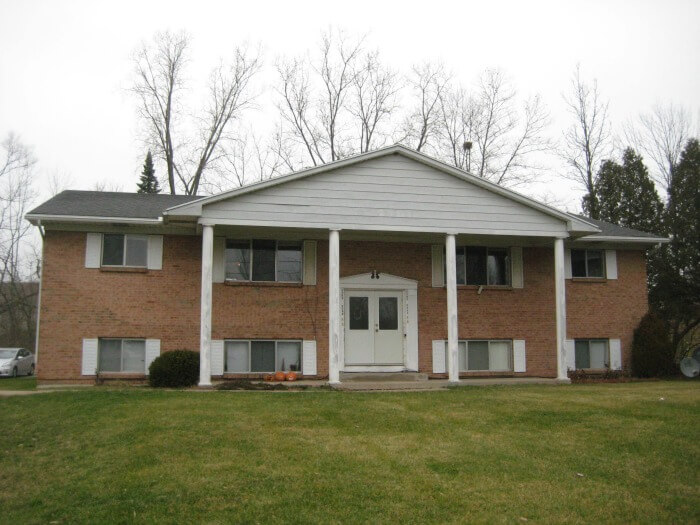
Do you invest in real estate? If so, why do you like it?
Funny you should ask. 🙂
Yes, I do. In fact, real estate is the top reason I am financially independent today.
I like that it offers both capital appreciation and income. I also like the creative aspect of it (like remodeling units) and, of course, the business side. Owning real estate is basically having your own small business which is fun to me.
Can you describe your approach to real estate investing?
I buy (or bought — I haven’t purchased anything in a few years) rental properties at relatively low prices, fix them up, raise rents, then watch the money come in over and over again.
I prefer multi-units but also own a couple single-family homes.
How did you get started? How did you get the money? Did you have any help?
Here’s the long story of how I became a landlord.
The short story is as follows:
During the financial crisis in 2008-10, real estate took a beating in Grand Rapids, Michigan (where we lived at the time). I met with a friend who was a real estate agent and asked if he could teach me the ropes of buying and managing rental real estate. He did just that and over the next couple of years, I bought three properties with a total of 14 units.
I got the money from cash that had built up as well as selling some index funds. I paid in all cash which helped me get good prices (I could move quickly and sellers wanted OUT FAST during this time).
This is another advantage of a high income and moderate spending — you generate a lot of excess cash that can be deployed in many positive ways.
What were the biggest obstacles you faced when starting? How did you overcome them?
My biggest obstacles were 1) I knew NOTHING about real estate and 2) I was scared to death that I was going to lose everything.
The friend mentioned above helped me overcome. He was a great mentor and taught me everything I needed to know. He was reassuring when I was doubtful. Then once I got started and saw it wasn’t really that daunting of a task, things were much easier.
[Chad: This once again demonstrates the truth that your team is the main ingredient of stardom. John’s friend and real estate agent filled in the gaps of the knowledge and confidence he was missing at the time. We all have gaps, and we all need comptent, trustworthy people around us to fill those gaps.
What % of your net worth (roughly) is in real estate?
About 15%. But it makes up about 60% of my retirement income and is the reason my index funds just sit there and keep growing — and will until I pass away. Now I just need to decide how to disburse them upon my death! ha!
[Chad: John’s approach is the perfect example of the “income floor + upside investing” strategy I shared in My Rental Retirement Strategy. He just happens to use index funds for his upside investing. It’s a simple, passive, and effective approach. He didn’t say it, but he also owns a 3rd important asset class – a small business (his websites). These provide him fun projects and some additional income and equity.]
What other types of assets do you invest in? Why? How do they fit with/complement real estate investments?
Most of my assets are in index funds at Vanguard. (Here are some details into my holdings. It’s a bit dated but still relatively accurate.) This is the way I built my wealth — saving and investing good amounts of money for year after year after year.
Real Estate Deal
First rental purchase (before)
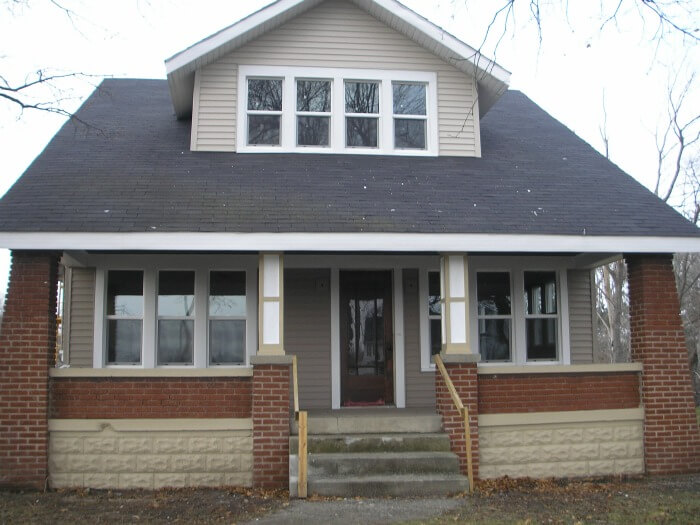
What’s the best or most memorable real estate deal you’ve made? Why?
The most “memorable” has to be the first, right? I bought a 90-year-old house owned by the government for $90k. It had four bedrooms and another two-bedroom place on the back of the lot. We put something like $30k in the two places (adding a bedroom to the back place to make it three bedrooms). Once I was able to master that beast, anything was possible. Ha!
Oh, and we had homeless people living on the porch for a bit, so getting them to move on was an adventure.
How did you find the deal? Why did the owner sell?
My mentor sent me deals from the MLS and we’d chat about them, go see the ones we thought might work and bid on ones that made our financials work. Remember this was during the financial crisis (or shortly thereafter depending on when you consider it happening) so there were way more sellers than buyers (which is when I love to buy!)
The property was owned by the government. It had fallen into disrepair (not bad, but some) after the owner abandoned it (or it was seized — we never found out the real story). Anyway, I bid against one other person and won. This was about six months after we first started looking, so I’m sure my mentor thought I was never going to buy anything!
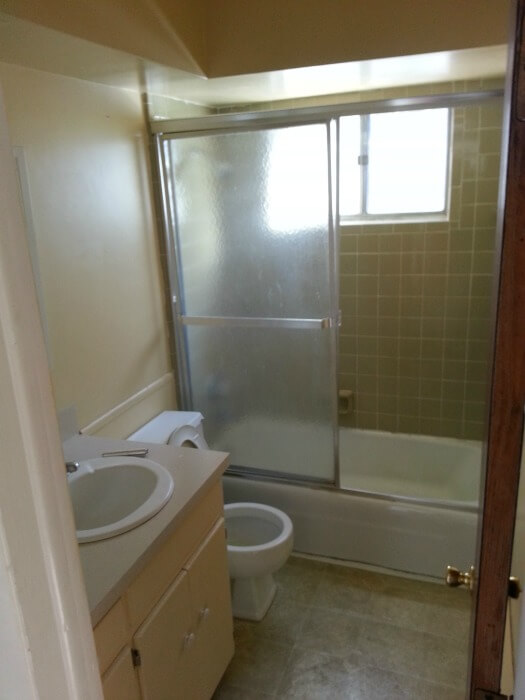
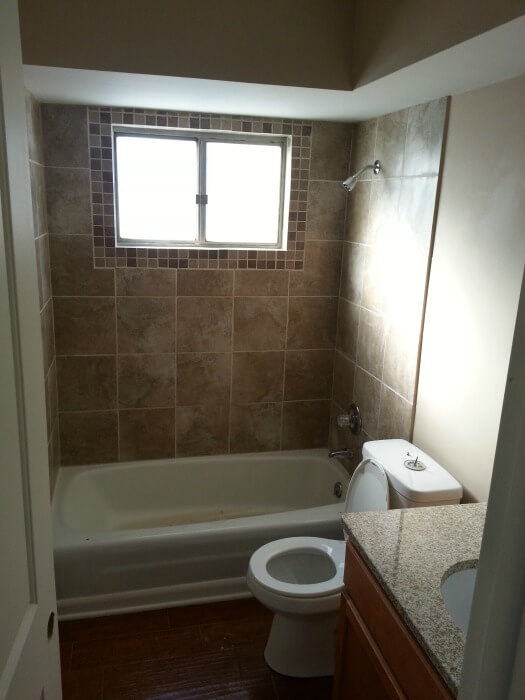
What were the basic numbers like purchase price, remodel costs, rent, resale price (if applicable)
Here are the specifics and financials of all my real estate purchases for those who want all the nitty-gritty details.
The summary is that I looked at each purchase as a business and decided whether or not it was a good investment from there.
This means determining costs (buying the place plus remodeling) and comparing that to what I could make on it (revenue less expenses). I did a pro forma income statement on every property I made a bid on to determine 1) if I wanted it and 2) what I was willing to pay for it.
How did you finance the property and raise down payment funds?
I paid cash as noted above.
What has been the overall effect of this deal on your life? Lessons learned?
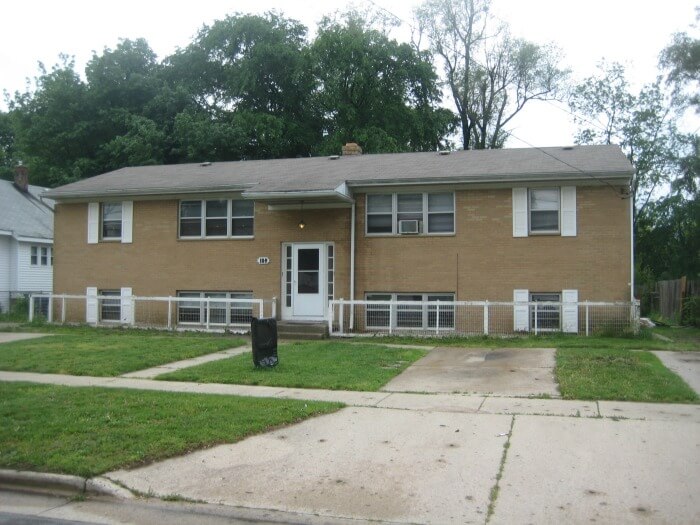
The impact of these properties cannot be understated. Once I had them I was completely financially independent with them alone — not needing to draw down any of my assets (I was financially independent prior to that, but I would have needed to drawdown my investments to retire.) Their income was a big factor in me finally retiring a couple years ago. I knew I could survive on income from them alone if I needed to, so why not stop working?
Here’s a list of the things I think I did well and that I could have done better when I bought my real estate.
My biggest regret is that I stuck to my objective of a 10% return on my money based on the income generation alone. If I had modified that a bit (maybe to 9%), I would own at least twice as many places, churning off a fortune and having appreciated by 50% or more. Ugh. But hindsight is 20/20.
[Chad: This reminds me of the Warren Buffet quote: “Opportunities come infrequently. When it rains gold, put out the bucket, not the thimble.” But it’s hard to regret taking action, which John did. The more experience you get, the more you know to recognize unbelievable opportunities like 2008 – 2011. That’s another reason the rich get richer!]
Personal Growth/Development
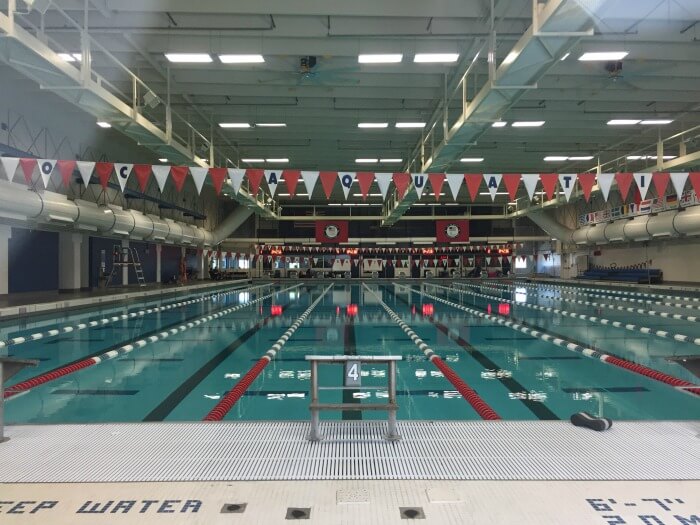
Do you have any tools that help you manage your life, like a physical planner or digital software?
What does a typical morning routine look like for you?
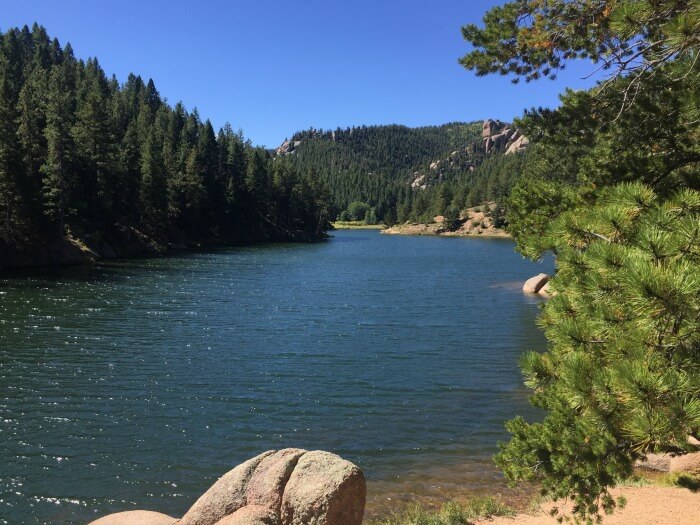
Funny you should ask this since I’ve written on morning routines and how they can make people wealthy.
These days my mornings are a bit different than they were when I was working.
I’m actually up earlier because now I work on things I want to do instead of things I have to do.
So I’m up at 5:30 am (I wake up naturally — no alarm needed).
I have a glass of water, a protein drink, and a cup of coffee.
I then check my site, read a bit, and plan my day’s activities on Todoist.
By 6:45 am or so I walk to the gym (this is a good time as it gets me there after the early birds have arrived but before they’ve left. They are working out when I arrive to a near-empty locker room — and they are gone by the time I return to it for a post-workout shower).
Afterwards, I walk home, grab something to eat, and do a bit of blogging work until my wife gets home from the gym (she goes about an hour after I do). We then take a 30-minute walk around the neighborhood. By this time it’s 10:30 am or so and I’m ready to begin my day.
[Chad: I love the deliberate yet casual tone to this morning schedule. It’s a lot like mine too, except mine also involves kids getting to school – many times with screaming! But after the screaming is done, the non-rushed, enjoyable mornings (often taking walks with my wife) are one of my favorite parts of achieving more financial success.]
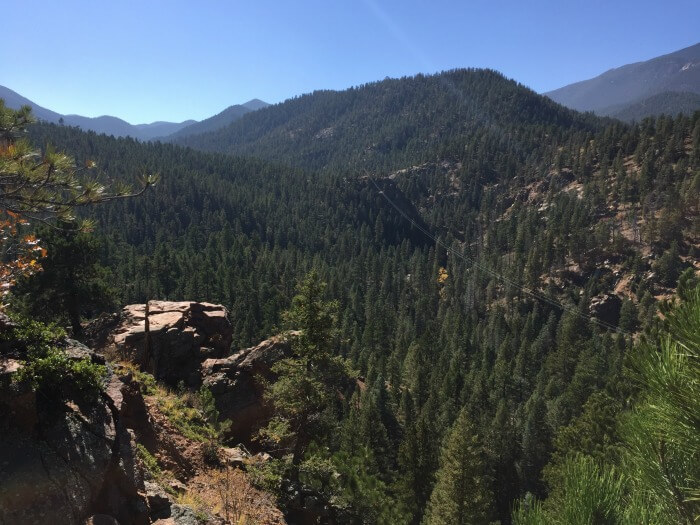
What’s your #1 habit to stay personally productive and fully engaged in life?
I set annual resolutions/goal in all areas of my life and I track how I am doing achieving them on a daily basis.
[Chad: John and I share the similar habit of an annual review. I agree that’s it’s one of the most important steps you can take to become more productive and fully engaged in life.]
Who have been your most important heroes, mentors, and/or teachers?
I’ve had many, but a few of note are:
My mom. She worked so hard as a single parent and taught me so much about making the best of bad situations.
In college I had a faculty member take me under his wing. He gave me lots of great career advice and directed me to the industry that eventually became my almost three-decade career.
As for teachers, I’ve learned a lot from many authors. I read The Millionaire Next Door when it came out and started applying its principles in my life. The results speak for themselves and I’m very grateful to the authors for writing that book.
What are your favorite books or authors? Can be categories in business, investing, or life/philosophy (other than a sacred book)?
Here’s my list of the five personal finance books that have made the most impact in my life.
As for business, my favorites are:
[Chad: John and I share some books on the top of our list. The 7 Habits is easily one of the most influential business/personal development book for me. I continue to draw on its lessons. And on the finance book list, I share his enthusiasm for How Much Money Do I Need to Retire by Todd Tresidder and Your Money or Your Life by Vicki Robin and Joe Dominguez]
What legacy do you want to leave personally and in your career?
I’m not too worried about leaving a legacy in my career. It was what I did, not who I am.
My kids are my greatest legacy and I simply want them to be good people who make the world a better place. I’m thankful that it appears they are on the path to doing just this.
Final Advice For Other Investors
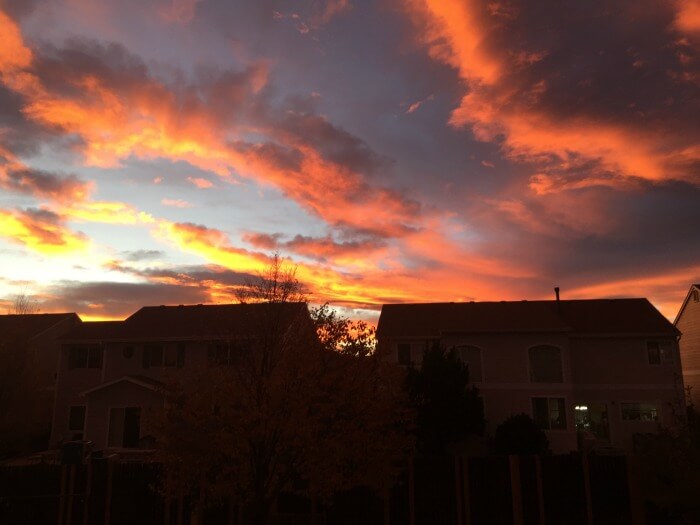
Any big mistakes you’ve made that others should avoid?
I didn’t begin investing and saving until I was five years or so into my career.
My advice is to save all you can for as long as you can — which means starting ASAP.
What advice do you have for a young person just considering their future career and life as an adult?
I would suggest they review and consider my seven steps to growing your career.
I had to learn these through trial and error and I still had over 8% annual increases. If someone just starting out would learn and apply these, they should do much better than I did (which will have an unbelievably positive impact on their finances as well as how much they enjoy their work.)
Any final tips for others looking to invest in real estate and achieve financial independence?
Start early, pay attention to your numbers, and get a mentor who knows more than you do if possible.
Do those three for 10 to 20 years and you’ll be all set.
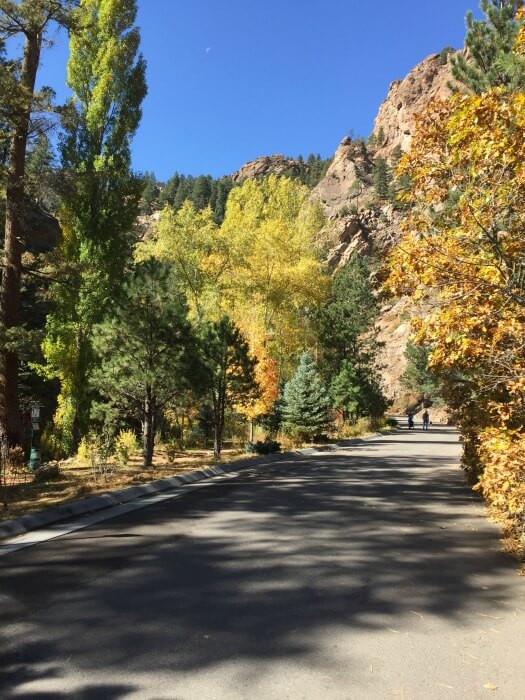
Thank you John for sharing your wisdom with us! For those of you who’d like to follow his blog, John writes as ESI at ESI Money, a blog about achieving financial independence through earning, saving, and investing (ESI). He is also the author of a free ebook titled Three Steps to Financial Independence and spends a lot of his time interviewing millionaires.
Please leave comments or questions for John in the comments section below. He’d love to hear from you!
Get My Free Real Estate Investing Toolkit!
Enter your email address and click "Get Toolkit"
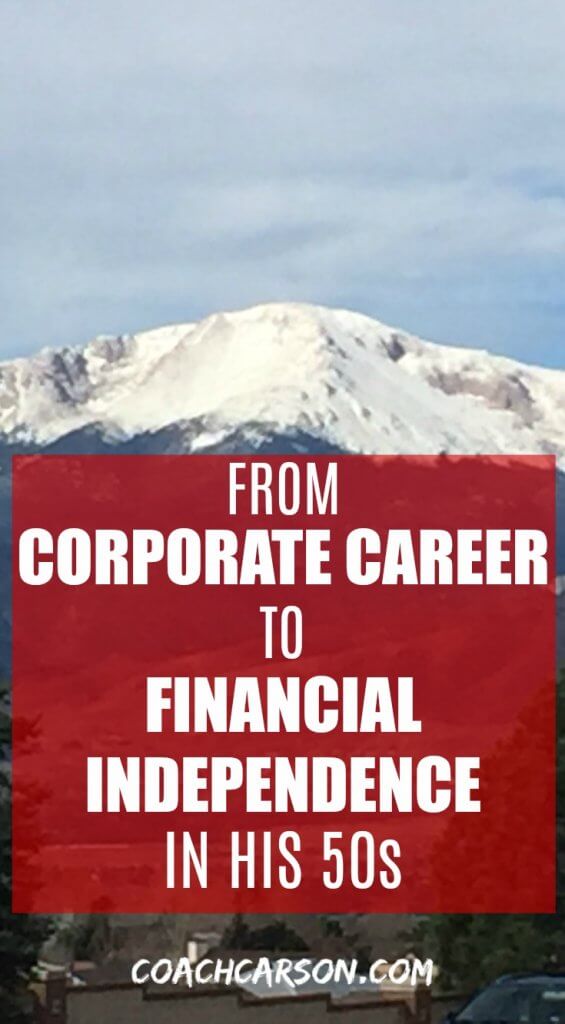
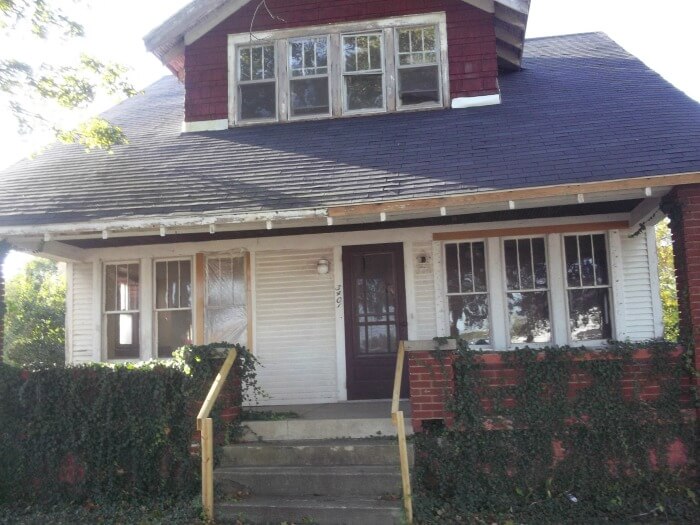
Great article Chad! Been a follower of yours for some time now and always enjoy your content. As someone who’s just getting started in real estate I am interested to know more on this comment “Biggest regret is I stuck to an objective of a 10% return on my money based on the income generation alone.”
Is John referring to Cash on Cash ROI here? I personally look for a minimum of 12% coc roi, so I’m curious about how buying more properties at 9% could of benefited him by so much more?
Thanks!
Matt
Hey Matt, thank you for being a regular reader and for your comment! You ask a really good question. I’ll tap John to let him answer for himself as well.
But for me, I think it means not to get hung up ONLY on cash flow because the deals that make the best money long-run don’t always have the best cash flow up front. For example, the best locations in your town that attract the best tenants (i.e. least hassle and turnover) and that appreciate the most over time (rent and values) may not be a 10 – 12% ConC today. And if you skip those, you’d be skipping some of the best deals.
In John’s case, he was also buying in 2009-2010 when deals where everywhere. So, if he had been a little less strict with his ConC, he would have bought many more very good deals that could have made a lot of money.
With all that said, you have to have a cutoff point. And you can’t do every deal. But we have to look at our cutoff point and make sure it’s appropriate and takes into account other criteria for a good deal.
That’s my take:)
Chad has summarized my thoughts exactly. A few more details…
I bought my places for cash (I don’t do debt) then invested more money to upgrade them.
As an example, let’s say I put $80k into a place and invested $20k to fix it up. I now have $100k total into the place.
I would then want to net at least $10k (10%) before I bought it. If I was willing to accept $9,500 or even $9,000, I would be thrilled with that today as I have money sitting around earning 1%.
This is one reason I bought RockstarFinance.com — I could take money earning 1% and make it into money earning much, much more.
Hope this explains.
Great interview, Coach! I love reading the back stories on my blogging friends.
John, you make life seem so… well, ESI. It’s clear that you made many smart and calculated decisions to achieve the financial freedom you enjoy today.
Those steps up Pike’s Peak look nuts. One hour?!? You really are in the best shape of your life, aren’t you? My wife and I hiked up the steps at Koko crater in Oahu and plan to introduce our kids to the 1,048 steps in a few weeks, but that’s nothing compared to the 2,700 there in rarified air.
Cheers!
-PoF
Thanks for stopping by, Doc. I agree – interviews and backstories are a fun part of the “job.”
Yeah, I’ve been running up stairs here in Ecuador, but NOTHING like that Pikes Peak picture. I now have a new standard to aspire to. Lol.
Thank you John and Chad for the additional insight. I’d not thought of it in that way before, it makes a lot of sense!
All the best,
Matt
I always love hearing success stories about how people reach financial independence. The journey is always different for everyone, even though most people who I talk to use a broad-strokes mixture of rental properties and mutual funds/ETFs.
And, of course, high savings rate!
Love the walking and hiking – I miss hiking, living in a flat desert, but I still go for long walks several times/week.
Thanks for sharing your story John!
Thanks for stopping by, Brian. I also love FI stories. It is fun to find the common threads and the unique differences.